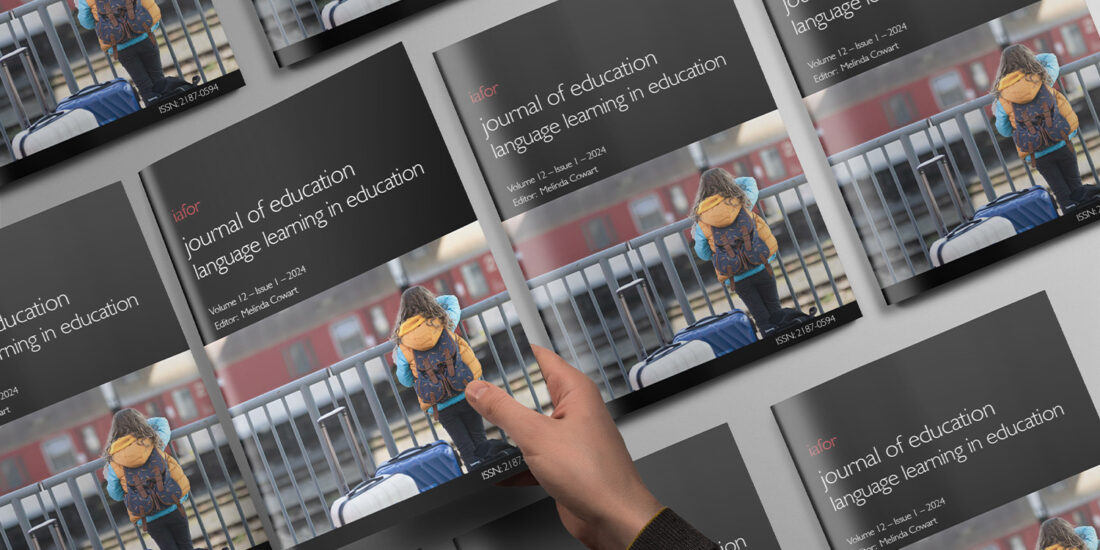Volume 12 – Issue 1: The Language Learning in Education Issue
Submissions open: Tuesday January 16, 2024
Submissions close: Friday February 26 (9am JST), 2024
Target publication date: Thursday May 30, 2024
As the call goes out for submissions for our next Language Learning in Education issue, there exists a world in substantially more chaos and calamity. With concerns rising for the futures of significant numbers of individuals, displacement and movement are common considerations.
A recent report from The United Nations on Global Trends for 2024 revealed that more than 108 million persons have already been displaced as of late 2023, including refugees, asylum seekers, internally displaced people, and other globally displaced people who still needed to apply for refugee status or political asylum. By the end of September, 2023, more than 6.2 million refugees have fled Ukraine. Rohingya Muslim refugees from Myanmar, the world’s largest stateless group since being denied citizenship in their heritage nation, continue to look for a country who will accept them. Additionally, immigrants who elect to move to another country for education or economic reasons are among the sizeable numbers of individuals who must learn an additional language in order to accomplish goals and achieve success in education and business. A world in upheaval remains on the move, placing language, cultural identities, and futures in disorder and distress.
In today’s milieu it is uncommon for a nation to remain unaffected by persons who must escape for safe haven or those who assist newcomers in search of a new beginning where safety and survival are possible. For those who flee and the individuals and groups who receive them, language learning is commonly a certainty. A persistent mandate exists for improving the understanding of language and languages as well as the teaching and learning of language for children and adults.

Fresh challenges continually confront educators at the forefront of language teaching and learning. The need to consider the affective aspects of language learning remains critical as the conversation regarding factors that impact second language acquisition persists. Educators engaged in teaching and researching the teaching and learning of second and additional languages continue to encounter themes such as displacement, persecution, and other destabilizing factors while children and adults are compelled to engage in the language learning process in order to survive and flourish in a new home country or region.
Multiple questions remain regarding the academic, affective, cultural, and linguistic welfare of students who are language learners by necessity. Factors that may inhibit second language acquisition and acculturation and stem from school disruption due to war, escape, resettlement, and adjustment point to the following inquiries:
-
- What may be anticipated of adults and children who have endured school or career disruption in their heritage nations and are required to learn an additional language?
- When second language learners lack or lose access to technology, what alternative methods of teaching may be employed?
- What research-proven strategies can be implemented to facilitate a positive context of reception when the context of exit is harsh?
- How may the emotional and psychological health of children and parents who are newcomers temporarily impede second language acquisition?
- What are the academic/cognitive, linguistic, and affective effects of a protracted period of war and loss on second language learning?
Submissions open to a variety of topics
While these questions are a troubling part of language learning education, they are not the only issue that should be considered for submission of a manuscript. The journal is open to a variety of topics, including the following:
-
- Adult language learners – motivation, needs, and language identity
- Characteristics of effective professional development for teachers and administrators
- Cross-cultural aspects of second language learning
- Cross-cultural communication
- Curriculum and/or program development for additional language learning
- Differentiated instruction for those engaged in language learning
- Displaced persons and language learning
- English for special purposes (ESP)
- Foreign language instruction
- Research proven effective models for language instruction
- Innovation in educating diverse populations
- Language and cultural identities
- Language learning and assessment
- Reflective language teaching and learning
- Social issues in language learning
- Strategies for supporting the native language
- The debate surrounding native speakerism
- The role of the heritage language and culture in second language acquisition
- Translanguaging
- Using music and art to enhance academic achievement
- World Englishes
The Language Learning in Education Issue will continue to accept submissions with specific focus on language learning among newcomers from harsh places, including refugees. In addition to the themes stated above, research that delves more deeply into the new methodologies in a time of crisis is invited. Such an exploration requires a closer look at both the mechanics of language learning and the affective domain and affective factors that influence the language learning process.
We are looking forward to all of your extraordinary, thought-provoking submissions!
Editor, Melinda Cowart, EdD
Professor Emerita, Bilingual/ESL Teacher Education, Department of Teacher Education, College of Professional Education, Texas Woman’s University
Email: editor.joll@iafor.org

